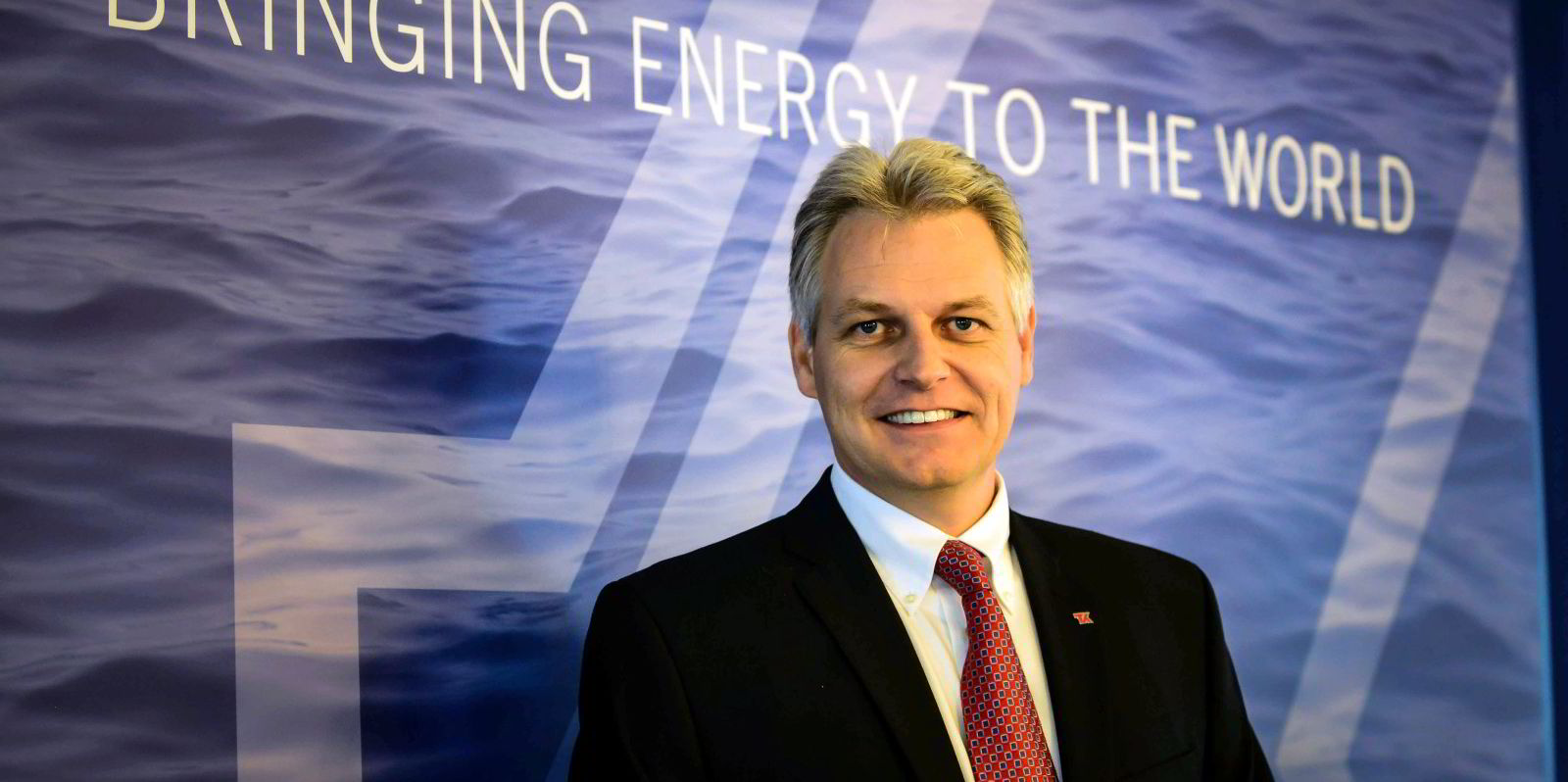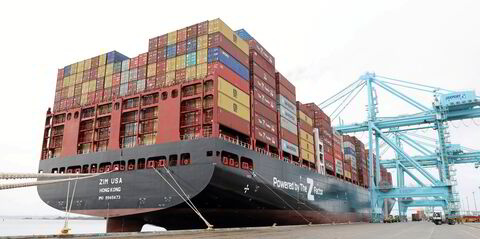Product tanker stocks were the darlings of the US equity market in 2022, but in the first quarter of this year, they paused the triple-digit gains from the past year while their counterparts in crude carriers and container ships outperformed.
That was a key takeaway from a Streetwise review of the 24 US-listed shipping stocks under the coverage of investment bank Jefferies and their performance from January until the end of March.

Overall, there was more good news than bad, as the average shipping listing gained 10% over the period on share price alone and returned 15% with dividends factored in.
Shipping’s performance topped that of the S&P 500, which gained 7% over the period.
The only two pure-play product tanker owners within the group did manage gains. Scorpio Tankers added 5%, while Ireland’s Ardmore Shipping rose 3% in share price and 6% with dividends considered.
But this was far from their market-leading performance for full 2022. Ardmore led all comers then with a 326% jump, while Scorpio was right behind at 320%.
A volatile rate environment in the first quarter gave investors pause. And both stocks had such a run in the previous year that a repeat was likely unrealistic amid concerns over how long market dislocation from Russia’s invasion of Ukraine would continue to boost numbers.
Last year also was strong for shipowners with only crude tankers in their fleets, as those listings gained an average of 79%. That pace continued to start 2023, as the stocks strengthened 22% in share price and 29% with dividends.
Companies with both crude and clean-product tankers gained about 25%, furthering their average 156% gain in 2022.
The switch in pecking order between dirty and clean tankers was just one of the notable elements over the first reporting period.
Individual companies
The top overall performer in share price among individual companies was Teekay Tankers — an owner with both crude and clean tankers.
The outfit soared from a starting point of $30.30 per share on 3 January to a close of $42.93 on 31 March – a gain of 42%. Teekay has a fleet of 44 tankers, consisting of 25 suezmaxes, 10 aframaxes and nine LR2 product tankers.
When Evercore wrote on Teekay’s robust fourth-quarter 2022 results on 23 February — and noted that net income of $4.28 per share had shattered consensus analyst expectations — researcher Jonathan Chappell said the company had “champagne problems: what to do with all that cash when the debt is gone”.
It is also worth noting that Teekay made those gains without offering a shareholder dividend, although there is widespread expectation that such a payout policy may come next.
Following closely after Teekay was crude tanker owner Frontline, which gained 38%, not least on investor relief that the John Fredriksen company had pulled out of merger plans with Belgian owner Euronav.
Coming third was Israeli liner operator Zim, whose 36% gain over the quarter signalled the bleeding in its share price from 2022 had been stanched. Zim’s 71% drop in stock value during 2022 was shipping’s worst.
Also noteworthy is that with dividends included, Zim was the first quarter’s top performer with a 73% gain following a payout of $6.21 per share.
Frontline was a strong second with dividend considered, returning 47%.

Bulkers bounce back, but...
Listed dry bulk owners had shown a mixed track record in 2022, with most losing ground on share price alone, but logging solid returns when their aggressive dividend payouts were considered.
Last quarter they were mostly back in the black on both criteria, but with a notable exception.
The average dry listing gained 6% in share price and returned 8% with dividends. But Connecticut-based Eagle Bulk Shipping had a rough quarter, losing 10% in share value and 8% with dividend considered.
It is noteworthy that Eagle Bulk led the dry bulk peers in 2022. Its share price held up better in the second half of the year as the freight market was spiralling down from historic highs, at least in part because it is a pure-play in the midsize sector, where rates resisted an overall slide.
That helped Eagle Bulk gain 10% in share price and return 27% with dividends.
What changed? Rates for Eagle Bulk’s sweet spot of supramaxes and ultramaxes deteriorated over the first three months of the year in comparison to owners with larger or mixed tonnage, such as Star Bulk Carriers, Genco Shipping & Trading and Golden Ocean.
Eagle shares also sold off dramatically after its fourth-quarter earnings came in below the guidance the company itself had provided to analysts.
And more recently there has been speculation — reported by Streetwise last week — that largest shareholder Oaktree Capital may be looking to sell out of the position it has held for a decade.
All of that added up to a quarter to forget for the Stamford-based company.
More shipping finance news
After a year in which the tanker market finally rebounded after several false starts, senior management at New York-based International Seaways saw a huge jump in compensation. Click here to read.
Former Credit Agricole Asia boss Kenneth Lam has launched a new ship-finance venture with his friend Sabrina Chao. Lam is now chief executive of Hong Kong-based SeaKapital, with shipowner Chao as chairman. Click here to read.
The transformation of Scorpio Tankers’ balance sheet continues as the New York-listed shipowner buys back six more vessels from expensive lease-financing and repurchases more of its own stock. Click here to read.



